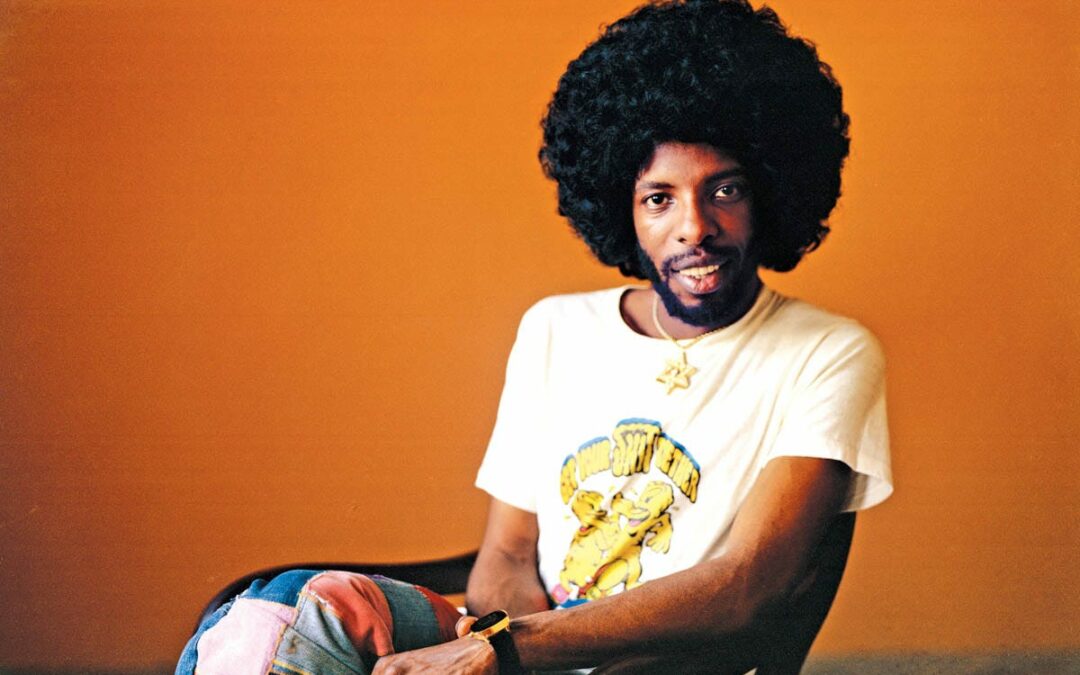In July 1972, Sly Stone stated to NME, “I personally believe that ‘There’s A Riot Goin’ On’ was a very truthful album.
It was made and then released at a very truthful moment in time.” This statement was made less than a year after the release of his unyielding masterpiece. Stone was aware that the truth always succeeds. And that is precisely the subject of my music: it is exclusively concerned with the truth and nothing else.
The album in question is tinged with an ugly reality, but its predecessors were joyous explosions of optimism set to immaculate psychedelic soul that made you move your feet, as if the world could simply dance its way to peace and harmony. This makes the album all the more compelling. Perhaps there was a period in the 1960s during which individuals truly believed they could. However, the title of “Riot”—a response to Marvin Gaye’s “What’s Goin’ On?”—emphasizes the opposite.
Even though the album’s lyrics are laced with poisonous irony and its production is muted and eerie, this did not impede its commercial potential. The main single, “Family Affair,” held its position for three weeks, while “Riot” insidiously rose to the top of the US charts. The single is a wedding disco staple that has been variously characterized as a bitter lament for the band’s disintegration and the absence of social cohesion in America, and is one of pop’s great Trojan horses.

It is unlikely that Sylvester Stewart, who passed away at the age of 82 after a protracted battle with Chronic Obstructive Pulmonary Disease (COPD), would have provided a comprehensive explanation. The individual who was more commonly recognized as the wildly flamboyant Sly Stone was renowned for his enigmatic nature. He granted elliptical interviews during his peak years in the late 1960s and early 1970s and declined to participate in them wholly when he retreated into self-imposed obscurity.
Stewart, who was born in Denton, Texas, in 1943, spent his childhood in Vallejo, a coastal city located on the outskirts of California’s North Bay Area. His parents, who were profoundly religious, encouraged their five children to discover their own creative expression through music. The offer was accepted by all but one of their offspring. The young Sly “played his part in the high school race riots that were endemic in the town,” as author Greil Marcus wrote in his landmark book of pop history, Mystery Train.
READ MORE: Rock Band From The ’90s And 2000s To Release Their First New Album In Eight Years
Before establishing himself as a natural broadcaster on the KSOL radio station in the region, he produced rock’n’roll recordings for Autumn, a local label. He was known for his ability to spin straight-up soul tracks, as well as The Beatles and Bob Dylan. He selected a line-up that was groundbreaking in its racial integration and pointed in its mix of genders when he established his band, which was then known as The Family.

The concept was to establish their own utopia, which was facilitated by the exceptional talents of the musicians, such as Sly’s sister Rose (who played vocals and keys) and white saxophonist Jerry Martini. In a rare interview with The Guardian in 2013, Stone stated, “I wanted people to look onstage and see the world and how the world can get along.” “If they could observe us and observe that we were having a good time, it may be easier for them to understand.”
Although it necessitated some time, the music eventually gained popularity. The debut album of Sly and the Family Stone, ‘A Whole New Thing’, released in 1967, was a creative psych-soul blend that lacked an obvious smash single and the zeitgeist-capturing lyrics that would become the band’s secret advantage.
Epic’s label requested a smash, and Stone obliged with the manically upbeat “Dance To The Music,” the title track of the band’s groundbreaking 1968 album. The series of albums that this initiated is truly remarkable, as a triumvirate of records—completed by ‘Life’ that year and ‘Stand!’ in 1969—exemplified and advanced the evolution of funk with an apparent boundless amount of energy and creativity. “Stand for the things you know are right / It’s the truth that the truth makes them so uptight,” encapsulated the radical, resistant pleasure that was the essence of their music in the latter’s title track.

The subsequent events have become integral to the lore of Sly Stone: a Bel Air mansion in which he armed himself with firearms, missed concerts, and rumors of discord within the group. Additionally, he experienced all-encompassing, drug-induced paranoia. In the aftermath of Charles Manson’s atrocities and the Rolling Stones’ 1969 free concert at the Altamont Speedway, “Riot” was finally released after a lengthy delay.
Thus, the dream concluded. What is the next course of action? Stone’s successful endeavor to reestablish the group’s previous exuberance, which culminated in the release of “Fresh” in 1973. Despite the record’s brilliance, it was akin to the work of a ghost in the machine, guiding the Family Stone through slick psychedelic funk and soul that exuded a false sense of unity. Several members had begun to resign, including Larry Graham, a pioneer in the slap-bass genre, who claimed that Stone’s bodyguard had threatened his life.
READ MORE: David Bowie’s Previously Unpublished Video From The Ziggy Stardust Tour
Following the Family’s dissolution in 1975, Stone continued to release albums with a rotating cast that were not well-received until 1982’s “Ain’t But One Way.” Subsequently, he made only intermittent public appearances, including a star-studded performance of Family Stone hits at the 2006 Grammys, amid allegations of drug dependence.

His first album in 29 years, ‘I’m Back! Family & Friends’, was released in 2011. The album featured three “new” compositions that were actually around 20 years old, as well as re-recorded classic music. He ultimately abstained from drugs in 2019, and the release of his entertaining but curiously unreflective autobiography, Thank You (Falettinme Be Mice Elf Agin), in 2023, demonstrated that he had not lost his capacity to surprise fans, who had never forgotten the joyful sense of protest in his art.
Sly Stone’s impact is immeasurable in terms of creativity and politics. rapper Doechii accepted the award for best female hip-hop artist at the BET Awards on the same day that news of his death broke. She condemned the deployment of military forces in Los Angeles, the location of the ceremony, as the Trump administration targeted protestors who opposed his immigration seizures. “I believe it is my duty as an artist to utilize this opportunity to advocate for all oppressed individuals,” she stated. “For the people of Gaza, for Black people, for Latino people, and for transgender individuals.” We are all entitled to live in hope, not dread.
Almost 60 years ago, Sly and his Family Stone began conveying the same message in their fearlessly truthful work, with varying degrees of optimism. The man has been surpassed by the disturbances; however, the music will endure.
Step into the ultimate entertainment experience with Radii+ ! Movies, TV series, exclusive interviews, live events, music, and more—stream anytime, anywhere. Download now on various devices including iPhone, Android, smart TVs, Apple TV, Fire Stick, and more!


